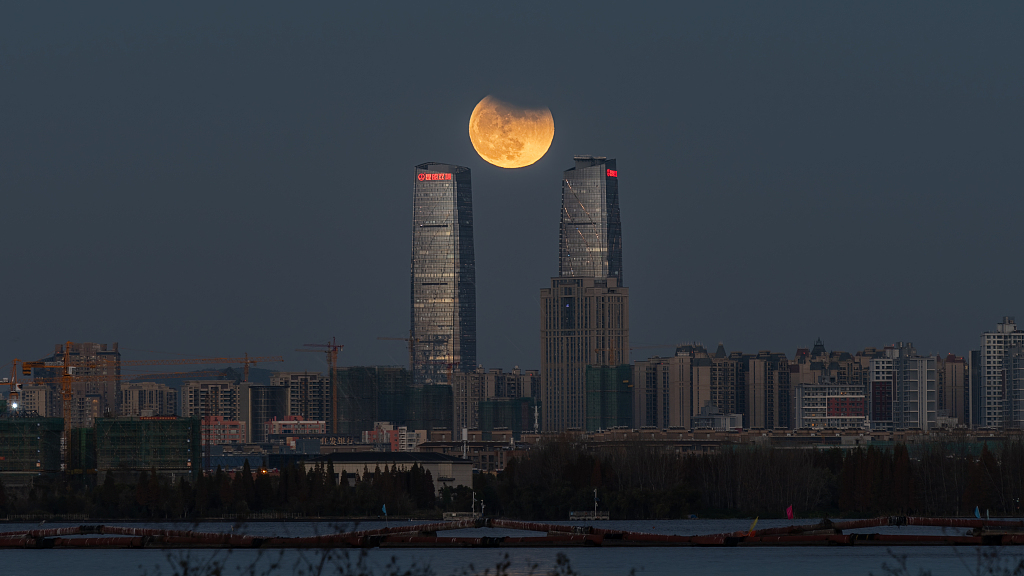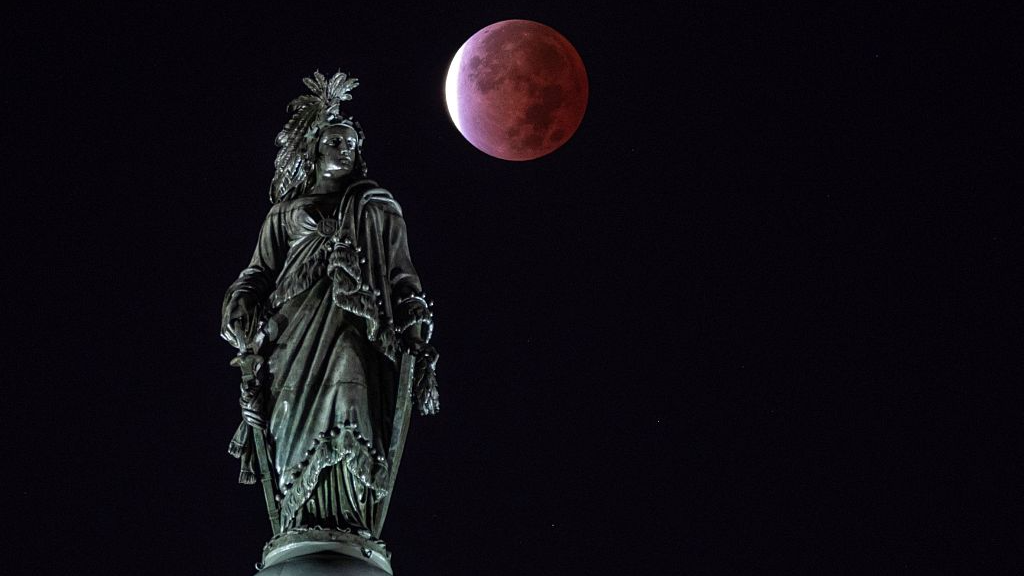
A partial lunar eclipse graces the night sky, Kunming, southwest China's Yunnan Province, November 19, 2021. /CFP
A partial lunar eclipse graces the night sky, Kunming, southwest China's Yunnan Province, November 19, 2021. /CFP
A partial lunar eclipse will grace the night sky early on Sunday morning.
The moon will appear to have a bite taken out of it during the partial eclipse from 3:34 a.m. to 4:53 a.m. Beijing Time (3:34 p.m. to 4:53 p.m. EDT), lasting for about 80 minutes.
It will be visible from Europe, Africa, most of Asia and the west of Australia, according to EarthSky.
People will be able to enjoy the sight of "a bite taken out of the moon" from all over China as long as the weather is fine, said Lai Dihui, a member of the Chinese Astronomical Society and director of the Tianjin Municipal Astronomical Society.
"Just go outside and look up at the sky, you will see the lunar eclipse happening," said Lai, adding that binoculars or a small telescope can help broaden the vision, but are not necessary.
A dark environment makes for the best viewing condition, Lai added.

A partial lunar eclipse is seen behind the Statue of Freedom, U.S., November 19, 2021. /CFP
A partial lunar eclipse is seen behind the Statue of Freedom, U.S., November 19, 2021. /CFP
According to NASA, there are three types of lunar eclipse, depending on how the sun, Earth and moon are aligned.
A lunar eclipse happens when the Earth comes between the sun and the moon, blocking the sunlight falling on the moon.
When the moon and the sun are on opposite sides of Earth, a total lunar eclipse occurs. During a partial lunar eclipse, part of Earth's shadow covers the moon.
An average of two lunar eclipses happen each year because of the orbits of the moon and Earth. The next lunar eclipse won't happen until March 2024, according to the Time and Date AS, a Norwegian company for time and time zones.